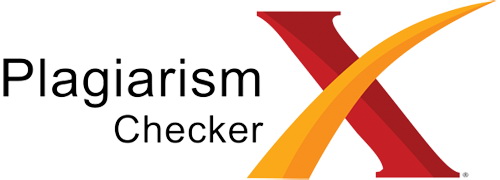The Implementation of English Literature in Classroom Literacy Learning in The Digital Era at MAN 2 Surakarta
DOI:
https://doi.org/10.53863/ejou.v4i02.1208Keywords:
Implementation, English Literature, Literacy Learning, Digital EraAbstract
Literature is the written language representing human expression or spoken works that are inspired by ideas, beliefs, experiences, and emotions in the form of imagination, reflection of reality or raw data wrapped in an aesthetic package through language. While literacy is the ability to read and write. The method used in this study is a qualitative method that uses descriptive analysis of data from interviews, discussions and observations and a literature review approach, while the references used are several scientific journals / articles, books and references from reliable sources. The subject of this research is the work of grade X and XI students or Phases E and F in the Independent Curriculum. The result showed of the understanding and provide into how the implementation of English literature can develop in the era of digitalization through literacy learning in the classroom such as the development of English literature in the era of digital technology that allows English literature to be recognized by students. The limitation of this research itself is that sources have the same perspective as the topic under study, so that this research can take and see from the perspective of the source, but with different content but the same context. So, with the role of English literature in learning literacy in the digital era, it certainly has a significant influence or contribution to the development of English literature. Thus, we can see that English literature can contribute or have a positive nuance to developments in literacy learning in the digital era, both theoretically and practically.
References
Beers, C. S., Beers, J. W., & Smith, J. O. 2009. A Principal’s Guide to Literacy Instruction. New York: Guilford Press.
Direktorat Sekolah Menengah Atas. (2020). Panduan Gerakan Literasi Sekolah (GLS) di SMA. Jakarta Selatan: Direktorat Jenderal Pendidikan Anak Usia Dini, Pendidikan Dasar, dan Pendidikan Menengah Kementerian Pendidikan dan Kebudayaan
Ming, K. 2012. “10 Content-Area Literacy Strategies for Art, Mathematics, Music, and Physical Education”. The Clearing House, 85: 213-220
Muldian Wien. 2018. “Strategi dan Implementasi Literasi sebagai Kecakapan Abad 21 dalam Pembelajaran”. Jakarta: Materi Paparan Umum Literasi BIMTEK K13 - SMA
Nazir, M. (2014). Metode Penelitian, Bogor: Ghalia Indonesia
Pahl. K, Rowsell, J. 2005. Literacy and Education. London: Paul Chapman Publishing.
Saryono. (2009). Pengantar Apresiasi Sastra. Malang: Universitas Negeri
Sugiyono, Prof. Dr. 2019. Metode Penelitian Kuantitatif, Kualitatif, Dan R&D. 2nd ed. edited by M. Dr. Ir. Sutopo S.Pd. Bandung: Penerbit Alfabeta Bandung.
Sumardjo, Jakob, dan Saini K.M. (1997). Apresiasi Kesusastraan. Jakarta: PT Gramedia Pustaka Utama.
UNESCO. (2023). UNESCO Strategy for Youth and Adult Literacy and its Action Plan (2020-2025). France: the United Nations Educational, Scientific and Cultural Organization. The UNESCO Open Access Repository (https://www.unesco.org/en/open-access/cc-sa).
UNESCO. (2003). Literacy, a UNESCO perspective. The UNESCO Open Access Repository (https://unesdoc.unesco.org/ark:/48223/pf0000131817).
Wandasari, Y. (2017). Implementasi Gerakan Literasi Sekolah (GLS) Sebagai Pembentuk Pendidikan Berkarakter. JMKSP (Jurnal Manajemen Kepemimpinan dan Supervisi Pendidikan), 12-22.
Wiedarti, Pangesti. 2018. Seri Manual GLS: Pentingnya Memahami GayaBelajar. Jakarta: Dikdasmen, Kemdikbud.
www.bibliotech.us/pdfs/InfoLit. pdf. Diakses pada 25 Mei 2024.
Downloads
Published
How to Cite
Issue
Section
License
Copyright (c) 2024 Arina Nuriyana Shofia,Sujito Sujito

This work is licensed under a Creative Commons Attribution-ShareAlike 4.0 International License.
Authors retain copyright and grant the journal right of first publication with the work simultaneously licensed under a Creative Commons Attribution-ShareAlike 4.0 International License that allows others to share the work with an acknowledgment of the work’s authorship and initial publication in this journal













